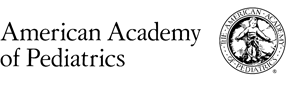
Research shows that up to half of children who take medications do not take them properly. For your child's prescription or OTC to work the way that it should, it is important to follow exact guidelines for its use.
Stick With the Schedule
Prescription medications need to be given consistently, and at the right times, to help your child get better. Do not skip a dose of your child's medication. When you first get the medication, ask your pediatrician or pharmacist what to do if a dose is not given on time.
Give the Right Amount
Measure carefully. Do not be tempted to increase the amount of medication you give your child in an attempt to speed up recovery. Giving your child more medication than is directed may harm him. With both prescription medications and OTCs, follow the directions exactly.
Know Your Child's Weight
With OTCs, it is best to determine how much medicine to give by checking the label to see how much is recommended for your child's weight. Age is not always an accurate measure of how much medicine your child should receive.
Do Not Stop too Soon
Your child should continue to take his prescription medication for its full course, even if he begins to feel better. The same goes for instances where he does not like the taste of the medication or protests.
Take Medications Safely
You can help prevent overdose or poisoning by following these tips:
- Always use good light. Giving medicine in the dark increases the risk that you will give the wrong medication or the wrong dose.
- Read the label before you open the bottle, after you remove a dose, and again before you give it. This routine can ensure your child's safety.
- Always use child-resistant caps and lock all medications away from your child.
- Give the correct dose. Children are not just small adults. Never guess how much to give your child based on her size.
- Do not increase the dose just because your child seems sicker than last time.
- Always follow the weight and age recommendations on the label. If you have questions, ask your pediatrician.
- Do not confuse the abbreviations for tablespoon (TBSP or T) and teaspoon (tsp or t).
- Avoid making conversions. If the label calls for 2 teaspoons and you have a dosing cup labeled only with ounces, do not use it. Use an appropriate measuring device.
- Be sure your pediatrician knows if your child is taking more than one medication at a time.
- Supervise your children when they take any medications. Never let young children take medication by themselves.
- Before using any medication, always check for signs of tampering. Do not use any medication from a package that shows cuts, tears or other imperfections.
- Let your pediatrician know if your child is taking any herbal products, supplements or home remedies. These substances can interact with many prescription medications and OTCs.
- Store your medications in a locked, childproof cabinet that is not located in the bathroom. Medications stored in a bathroom medicine cabinet can be affected by humidity.
It is not always easy to give medication to a child. You may find your infant or toddler hates the taste and spits out the medication or refuses to swallow it. Try adding a little sugar or juice (not honey) to the dosing device to make it taste better. However, do not combine medications with milk or try to mix them into a bowl of cereal. These may effect the medication's active ingredient and limit its absorption. Your child also may only eat part, or it may settle to the bottom and never get into her mouth.
Older children may be more willing to take chewable tablets than liquid medicines. Although most children's medications are flavored to make them taste better, avoid calling them candy. It might make your toddler decide to take them on his own.
Talk with your pediatrician if you have any questions or concerns about giving your child medications. Keep your pediatrician informed about any changes in how your child is feeling or if your child has any reactions to the medications.
